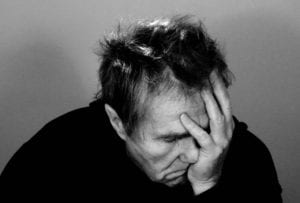
We’ve discussed the issue of false allegations of abuse on a number of occasions. Those articles have sparked considerable debate, and one of the issues that was brought up time and again is the issue of wrongful convictions. After all, false allegations sometimes lead to wrongful convictions, which is a heartbreaking tragedy, especially for parents.
With that in mind, we decided to share with you some information from the University of Michigan Innocence Clinic, on the most common causes of wrongful convictions. Although not all of these instances relate to child abuse cases, there are a number of issues that feature regularly in abuse and neglect cases here in Michigan.
According to the Innocence Clinic, there are many possible reasons why a person could be wrongfully convicted of a crime, including child abuse. However, the most common reasons can be summed up in the following six categories:
False Confessions:
Don’t believe that an innocent person can confess to a crime they didn’t commit? Well, you’re in for a big surprise! The facts are astounding, and you may learn a thing or two that will change the way you watch crime dramas on TV.
Studies have proven that people can be lead to believe things that aren’t true, even about themselves. In fact, a certain study revealed that investigators can plant memories of events that people will then believe, even if they were there and know that it never happened that way!
Junk Science:
Junk science is defined as untested or unproven theories that are presented as scientific fact, usually in a court of law. According to the Innocence Clinic, there are a number of forensic testing methods that are considered to be unreliable, lacking in validation, or simply incorrect.
A classic example of this that comes up regularly in child abuse cases is the issue of ‘shaken baby syndrome’.Additionally, forensic analysts sometimes testify in court without having accurate information or repeatable results to back up their claims.
Eyewitness Testimony:
It has long been known that no two people see a situation, event or person the same way. In the words of Steven R. Covey, “Two people can see the same thing, disagree, and yet both be right. It’s not logical; it’s psychological.” This is particularly true than when it comes to eyewitness testimony. In fact, according to the Michigan Innocence Clinic, eyewitness mis-identification is probably the single greatest cause of wrongful convictions throughout the U.S.
While this doesn’t tend to come up as often in child abuse cases, there are times when witnesses prove incorrect testimony that is detrimental to the defendant in an abuse case For example, a witness can testify to a parent’s rough handling of a child as an indicator of their capacity to harm, when in fact the parent was never ‘rough’ with the child at all. It’s all a matter of perspective.
Join us next time as we look at the remaining three items on our list. Until then, if you or a loved one have been falsely accused of child abuse or neglect, it is critical that you contact us immediately at 866 766 5245. The skilled attorneys at The Kronzek Firm have spent decades defending parents and caregivers accused of abusing and neglecting children. We know what you are up against and we can help you through it.

